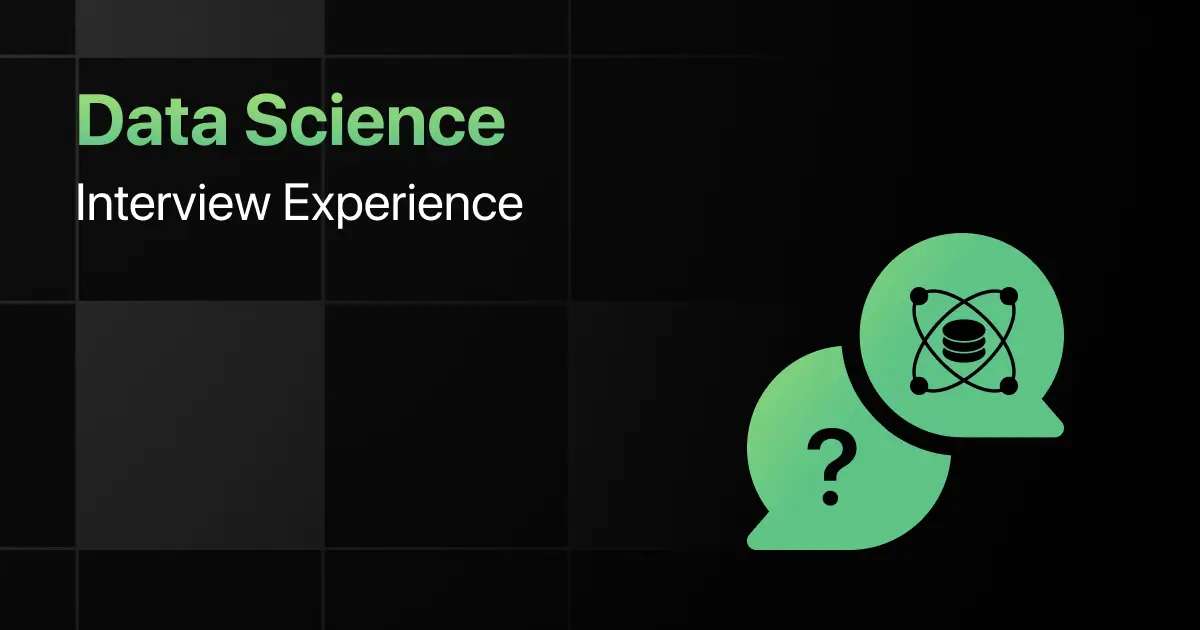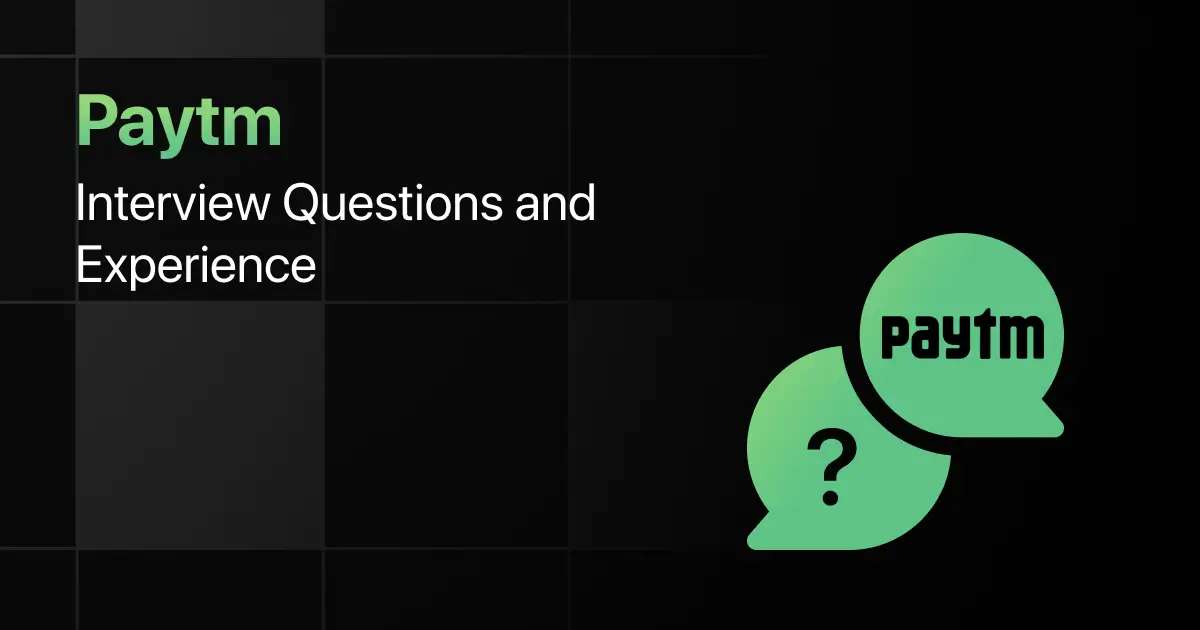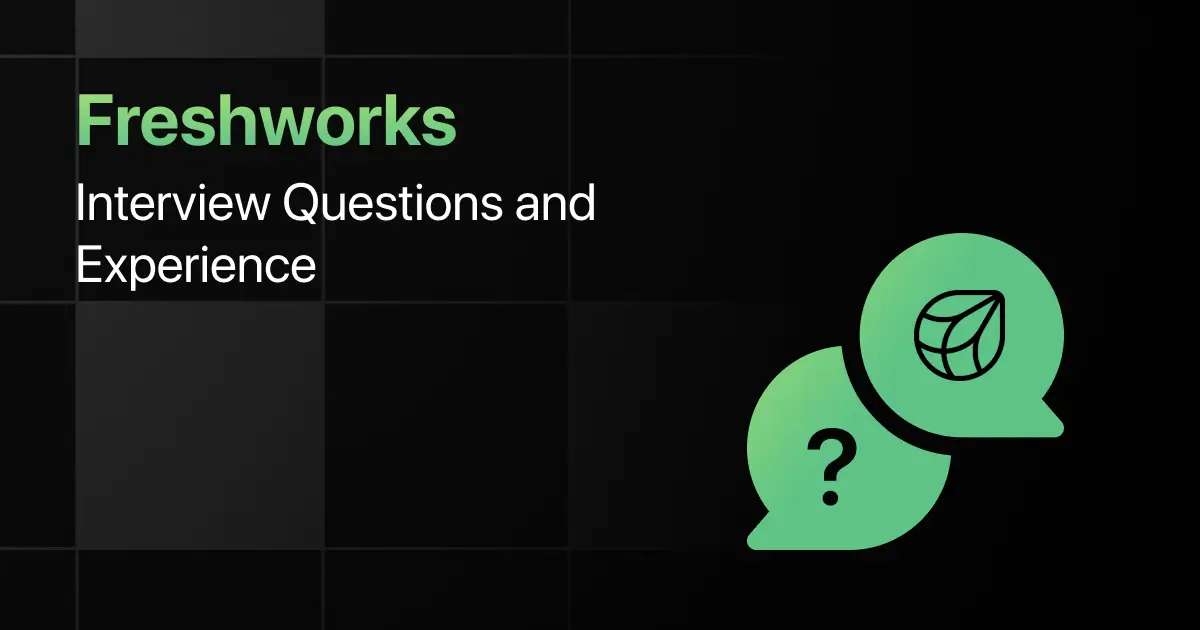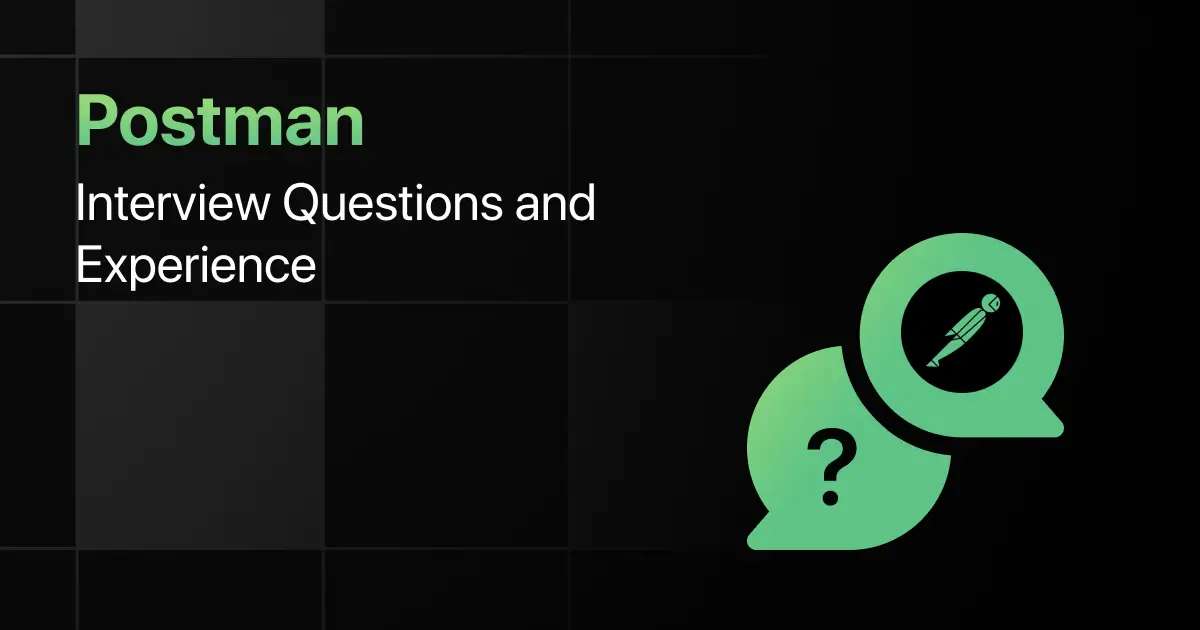Data Science Interview Experience

Have you ever wondered what it feels like to sit through a real data science interview? You may have prepared concepts and solved problems, but the actual experience can feel very different.
As a candidate, you often face uncertainty about the type of questions, the number of rounds, and the difficulty level. It can feel challenging when you do not know what to expect.
In this blog, you will read real interview experiences from candidates who appeared for data science roles. You will also find common questions and preparation tips to help you get ready with confidence.
Real Candidate Interview Experiences
1. Data Science Interview Experience at Microsoft
This interview experience is from Pragya Shukla’s friend, who interviewed for the Data Scientist 2 role at Microsoft. The process had four rounds that covered fundamentals, LLMs, design, and production topics.
Candidate Background:
- Experienced candidate for a mid-level data scientist role.
- Skills included machine learning, large language models, retrieval augmented generation, vector databases, similarity search, and model deployment.
Interview Process They Faced:
- Round 1 tested fundamentals and coding.
- Round 2 focused on LLM training and evaluation and similarity measures.
- Round 3 mixed advanced ML problem solving with a short behavioral segment.
- Round 4 was a project deep dive and production readiness discussion.
Questions Asked:
- Statistical: Discussion on the curse of dimensionality and when to use dimensionality reduction. Trade-offs in text similarity metrics such as BLEU, ROUGE, and embedding cosine similarity.
- ML: Positional encoding in transformers and its intuition. LLM training pipeline design from data curation to evaluation. Similarity search with FAISS and Milvus and related bottlenecks.
- Coding: Implement logistic regression from scratch using NumPy.
- Case studies: Evaluate a RAG pipeline with edge cases and failure modes. Design a system to deploy and scale models with retraining, online and batch inference, and monitoring. Walkthrough of a recent GenAI project and how it was evaluated and taken to production.
Outcome & Difficulty Level:
- The candidate was selected.
- The difficulty level was high.
- Interviewers valued clarity of thought, structured problem solving, and end to end ownership over only algorithm knowledge.
2. Product Data Scientist Interview at Meta.
This interview experience is from Aadish Chopra, who interviewed for a Product Data Scientist role at Meta. The screening round focused on SQL, product sense, and data interpretation within a business theme.
Candidate Background:
- Experienced candidate with skills in SQL, Python, and product analytics. Focused on linking technical analysis with business outcomes.
Interview Process They Faced:
- A screening round was conducted on CoderPad with a static coding setup, meaning the code could not be executed. The questions were tied to a business context rather than being generic SQL or Python problems.
Questions Asked:
- Statistical/Experimental Design: Preparation required knowledge of A/B testing, randomization, power of experiments, and avoiding p-hacking.
- ML: Not directly tested in this round.
- Coding: SQL queries to calculate the issue rate of invalid_value events in the pixels table.
- Case studies/Product sense: Analyze how signal quality from the pixels table relates to ad performance in the ads table. Required identifying metrics such as issue rate and ROAS and interpreting insights in context of ad performance.
Outcome & Difficulty Level:
- Outcome was positive.
- The round was moderately difficult due to the static coding environment and thematic business context.
- Meta emphasized structured thinking, clear communication, and the ability to derive product-level insights from technical analysis.
Common Data Science Interview Questions
Data science interviews usually cover a mix of theory, coding, and product application. Below is a curated list of common questions grouped by category.
Statistics
- What is the curse of dimensionality and how do you address it?
- How do you interpret p-values in A/B testing?
- What is the difference between Type I and Type II error?
Machine Learning
- Implement logistic regression without libraries.
- Explain positional encoding in transformers.
- How would you design a pipeline to train and evaluate an LLM?
SQL
- Write a query to calculate the issue rate of invalid_value events from a table.
- How would you join tables to compare signal quality with ad performance?
- How do you calculate return on ad spend (ROAS) from given data?
Python / Coding
- Implement gradient descent for logistic regression using NumPy.
- Write code to evaluate a RAG pipeline for accuracy.
Case Study / Applied
- How would you design a system to deploy and scale a machine learning model?
- If your retriever returns irrelevant documents in a RAG setup, how would you improve the process?
HR / Behavioural
- How do you handle situations where your work is blocked due to team dependencies?
- Give an example of a time you had to collaborate across teams to solve a problem.
Preparation Tips for Data Science Interviews
A structured approach helps you prepare effectively for both technical and non-technical rounds.
- Master Fundamentals: Build a strong base in statistics, machine learning, and SQL before moving to advanced topics. Fundamentals often form the core of interview questions.
- Practice Coding: Implement common algorithms like logistic regression from scratch. This helps you build confidence in both logic and code structure.
- Work on Case Studies: Solve applied problems such as system design and model deployment. These prepare you for scenario-based questions.
- Review Projects: Be ready to discuss your past projects in detail, including design choices, evaluation metrics, and deployment.
- Simulate Interviews: Use tools like CoderPad or mock interviews with peers. This helps you practice under time pressure and get feedback.
- Prepare Behavioural Answers: Structure your responses using frameworks like STAR (Situation, Task, Action, Result). Interviewers value clear and concise communication.
- Stay Updated: Keep track of new tools and approaches in areas such as LLMs, RAG, and vector databases. Many companies test applied knowledge in these domains.
Final Words
Data science interviews can be challenging, but the right preparation makes them manageable.
By learning from real candidate experiences, practicing common questions, and reviewing both technical and behavioral skills, you can enter your interviews with more confidence and clarity.
Explore More Interview Experience for
FAQs
Data science interview experiences help by showing real processes, common questions, and candidate feedback, which makes preparation more focused.
Data science interviews frequently cover statistics, machine learning, SQL, Python coding, case studies, and behavioral questions.
The usual duration of the data science hiring process is two to four weeks, depending on the company and role.
Senior roles like machine learning engineer and product data scientist usually have the toughest interview rounds.
Freshers prepare by strengthening fundamentals in statistics, SQL, and Python, and practicing coding problems and projects.
Data science interviews focus on both concepts and coding, testing theoretical knowledge and practical application equally.
No, each company has its own process, but most include technical, coding, and behavioral rounds.
Related Posts


Paytm Interview Questions and Experience
Preparing for a Paytm interview requires a clear understanding of the company’s hiring process, the type of questions asked, and …
Warning: Undefined variable $post_id in /var/www/wordpress/wp-content/themes/placementpreparation/template-parts/popup-zenlite.php on line 1050








